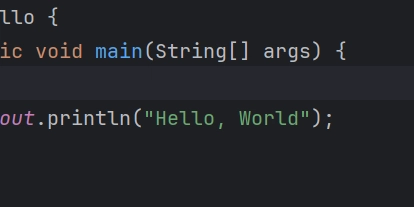Is Robotic Process Automation the Future of Finance and Accounting Efficiency?
In an era marked by rapid digital transformation, finance and accounting departments are under mounting pressure to increase accuracy, reduce costs, and speed up operations. With repetitive tasks taking up valuable time, professionals in this space are turning toward intelligent technologies to streamline workflows. One of the most transformative tools making a significant impact is Robotic Process Automation (RPA). While RPA has already revolutionized many sectors, its influence in the financial domain is particularly notable. The question many organizations are now asking is: Is Robotic Process Automation truly the future of finance and accounting efficiency? The evidence suggests that it very well might be. The Growing Role of RPA in Finance Finance and accounting functions involve a multitude of routine, time-consuming processes. From invoice processing and reconciliations to data entry and regulatory reporting, these tasks can bog down teams and hinder strategic initiatives. This is where RPA for Financial Services is making a difference. RPA uses software bots to perform high-volume, rule-based tasks that were traditionally handled by humans. By mimicking user actions, such as logging into systems, extracting data, filling out forms, and performing calculations, RPA dramatically increases speed while reducing the risk of human error. It's not just about automating — it's about optimizing. RPA in Banking: Enhancing Precision and Productivity One of the earliest adopters of RPA in the financial ecosystem has been the banking sector. With increasing regulatory demands and the need for operational excellence, RPA in Banking has become more than a trend — it's a strategic imperative. Banks use RPA to automate processes such as Know Your Customer (KYC) verifications, loan processing, fraud detection, and customer onboarding. These tasks typically require multiple steps across different systems. RPA bots can handle these tasks quickly and without fatigue, freeing employees to focus on complex decision-making and customer engagement. As a result, RPA in Banking not only improves efficiency but also enhances the customer experience and compliance adherence. Intelligent Automation in Financial Services: Beyond Simple Automation While RPA alone is powerful, combining it with Artificial Intelligence (AI) opens the door to Automation in Financial Services. This next-level approach uses AI technologies like natural language processing and machine learning to handle unstructured data and make informed decisions. For example, intelligent automation can extract relevant information from financial documents, analyze spending patterns, and even predict cash flow issues. It’s like giving RPA the ability to think, not just act. This is particularly valuable in areas like audit, risk management, and financial forecasting, where interpreting large volumes of data is crucial. Intelligent Automation in Financial Services transforms traditional workflows into smart, adaptive systems that can learn and evolve, leading to greater efficiency and agility. Benefits of RPA for Financial Services The adoption of RPA for Financial Services offers a wide array of benefits that align perfectly with the goals of modern financial departments: 1. Cost Reduction RPA significantly cuts labor costs by automating tasks that would otherwise require large teams. A single bot can operate 24/7 without breaks or errors, delivering consistent results. 2. Increased Accuracy Manual entry is prone to mistakes. RPA reduces human error and improves compliance, which is essential in industries governed by strict regulations. 3. Improved Scalability As business volumes fluctuate, RPA allows organizations to scale operations without the need for additional staff or infrastructure. New bots can be deployed quickly to handle increased workloads. 4. Faster Processing Times Financial tasks like reconciliations, report generation, and payment processing can be completed in a fraction of the time, allowing teams to shift focus to more strategic initiatives. 5. Employee Satisfaction By removing mundane and repetitive tasks, RPA empowers employees to focus on analytical and value-driven activities, which leads to greater job satisfaction and productivity. Real-World Use Cases Let’s take a look at how some finance functions are leveraging RPA effectively: Accounts Payable and Receivable: Automating invoice processing and payment tracking reduces delays and improves cash flow visibility. Financial Reporting: RPA can compile data from various sources and generate real-time reports with minimal human intervention. Tax Compliance: Automated bots can gather data, complete tax forms, and ensure timely submissions to reduce compliance risks. Audit Trails: RPA ensures every transaction is recorded and traceable, creating a transparent audit trail. T

In an era marked by rapid digital transformation, finance and accounting departments are under mounting pressure to increase accuracy, reduce costs, and speed up operations. With repetitive tasks taking up valuable time, professionals in this space are turning toward intelligent technologies to streamline workflows. One of the most transformative tools making a significant impact is Robotic Process Automation (RPA).
While RPA has already revolutionized many sectors, its influence in the financial domain is particularly notable. The question many organizations are now asking is: Is Robotic Process Automation truly the future of finance and accounting efficiency? The evidence suggests that it very well might be.
The Growing Role of RPA in Finance
Finance and accounting functions involve a multitude of routine, time-consuming processes. From invoice processing and reconciliations to data entry and regulatory reporting, these tasks can bog down teams and hinder strategic initiatives. This is where RPA for Financial Services is making a difference.
RPA uses software bots to perform high-volume, rule-based tasks that were traditionally handled by humans. By mimicking user actions, such as logging into systems, extracting data, filling out forms, and performing calculations, RPA dramatically increases speed while reducing the risk of human error. It's not just about automating — it's about optimizing.
RPA in Banking: Enhancing Precision and Productivity
One of the earliest adopters of RPA in the financial ecosystem has been the banking sector. With increasing regulatory demands and the need for operational excellence, RPA in Banking has become more than a trend — it's a strategic imperative.
Banks use RPA to automate processes such as Know Your Customer (KYC) verifications, loan processing, fraud detection, and customer onboarding. These tasks typically require multiple steps across different systems. RPA bots can handle these tasks quickly and without fatigue, freeing employees to focus on complex decision-making and customer engagement. As a result, RPA in Banking not only improves efficiency but also enhances the customer experience and compliance adherence.
Intelligent Automation in Financial Services: Beyond Simple Automation
While RPA alone is powerful, combining it with Artificial Intelligence (AI) opens the door to Automation in Financial Services. This next-level approach uses AI technologies like natural language processing and machine learning to handle unstructured data and make informed decisions.
For example, intelligent automation can extract relevant information from financial documents, analyze spending patterns, and even predict cash flow issues. It’s like giving RPA the ability to think, not just act. This is particularly valuable in areas like audit, risk management, and financial forecasting, where interpreting large volumes of data is crucial.
Intelligent Automation in Financial Services transforms traditional workflows into smart, adaptive systems that can learn and evolve, leading to greater efficiency and agility.
Benefits of RPA for Financial Services
The adoption of RPA for Financial Services offers a wide array of benefits that align perfectly with the goals of modern financial departments:
1. Cost Reduction
RPA significantly cuts labor costs by automating tasks that would otherwise require large teams. A single bot can operate 24/7 without breaks or errors, delivering consistent results.
2. Increased Accuracy
Manual entry is prone to mistakes. RPA reduces human error and improves compliance, which is essential in industries governed by strict regulations.
3. Improved Scalability
As business volumes fluctuate, RPA allows organizations to scale operations without the need for additional staff or infrastructure. New bots can be deployed quickly to handle increased workloads.
4. Faster Processing Times
Financial tasks like reconciliations, report generation, and payment processing can be completed in a fraction of the time, allowing teams to shift focus to more strategic initiatives.
5. Employee Satisfaction
By removing mundane and repetitive tasks, RPA empowers employees to focus on analytical and value-driven activities, which leads to greater job satisfaction and productivity.
Real-World Use Cases
Let’s take a look at how some finance functions are leveraging RPA effectively:
Accounts Payable and Receivable: Automating invoice processing and payment tracking reduces delays and improves cash flow visibility.
Financial Reporting: RPA can compile data from various sources and generate real-time reports with minimal human intervention.
Tax Compliance: Automated bots can gather data, complete tax forms, and ensure timely submissions to reduce compliance risks.
Audit Trails: RPA ensures every transaction is recorded and traceable, creating a transparent audit trail.
These use cases demonstrate how versatile RPA can be when integrated into financial ecosystems.
The Future Outlook: Evolving with Intelligent Tools
The future of finance will likely revolve around digital transformation, with RPA serving as a foundation. However, this foundation is expected to evolve into more intelligent, data-driven systems.
By integrating RPA with analytics platforms and AI tools, businesses can unlock predictive insights, automate complex decision-making, and continuously improve performance. This synergy is poised to create a more dynamic, responsive finance function that can adapt to market changes in real time.
Organizations that adopt RPA today are not just improving current workflows — they are laying the groundwork for intelligent automation ecosystems that drive long-term value.
Choosing the Right Partner for Automation
Implementing RPA is not a one-size-fits-all process. It requires careful planning, the right tools, and a deep understanding of financial operations. That’s where RPA Development Services comes in.
A specialized service provider can help organizations identify the best use cases, design efficient bots, ensure compliance, and provide ongoing support. Whether you are a small accounting firm or a global bank, expert-led RPA services can accelerate your journey toward operational excellence.
Final Thoughts
The adoption of Robotic Process Automation is reshaping the finance and accounting landscape. By automating tedious tasks, improving accuracy, and enabling intelligent decision-making, RPA is positioning itself as the backbone of a more agile and efficient financial future.
With the growing integration of RPA for Financial Services, banks, accounting departments, and financial institutions are discovering new opportunities to scale and innovate. As Automation in Financial Services continues to evolve, the possibilities are limitless.
For finance leaders looking to stay ahead of the curve, embracing RPA isn't just a competitive advantage — it's becoming a necessity. The future is here, and it’s automated.









































































































































































![[The AI Show Episode 144]: ChatGPT’s New Memory, Shopify CEO’s Leaked “AI First” Memo, Google Cloud Next Releases, o3 and o4-mini Coming Soon & Llama 4’s Rocky Launch](https://www.marketingaiinstitute.com/hubfs/ep%20144%20cover.png)




























































































































![[DEALS] The All-in-One Microsoft Office Pro 2019 for Windows: Lifetime License + Windows 11 Pro Bundle (89% off) & Other Deals Up To 98% Off](https://www.javacodegeeks.com/wp-content/uploads/2012/12/jcg-logo.jpg)




























![Is this too much for a modular monolith system? [closed]](https://i.sstatic.net/pYL1nsfg.png)






















































































































_Andreas_Prott_Alamy.jpg?width=1280&auto=webp&quality=80&disable=upscale#)






























































































![What features do you get with Gemini Advanced? [April 2025]](https://i0.wp.com/9to5google.com/wp-content/uploads/sites/4/2024/02/gemini-advanced-cover.jpg?resize=1200%2C628&quality=82&strip=all&ssl=1)












![Apple Shares Official Trailer for 'Long Way Home' Starring Ewan McGregor and Charley Boorman [Video]](https://www.iclarified.com/images/news/97069/97069/97069-640.jpg)
![Apple Watch Series 10 Back On Sale for $299! [Lowest Price Ever]](https://www.iclarified.com/images/news/96657/96657/96657-640.jpg)
![EU Postpones Apple App Store Fines Amid Tariff Negotiations [Report]](https://www.iclarified.com/images/news/97068/97068/97068-640.jpg)
![Apple Slips to Fifth in China's Smartphone Market with 9% Decline [Report]](https://www.iclarified.com/images/news/97065/97065/97065-640.jpg)



































































































































